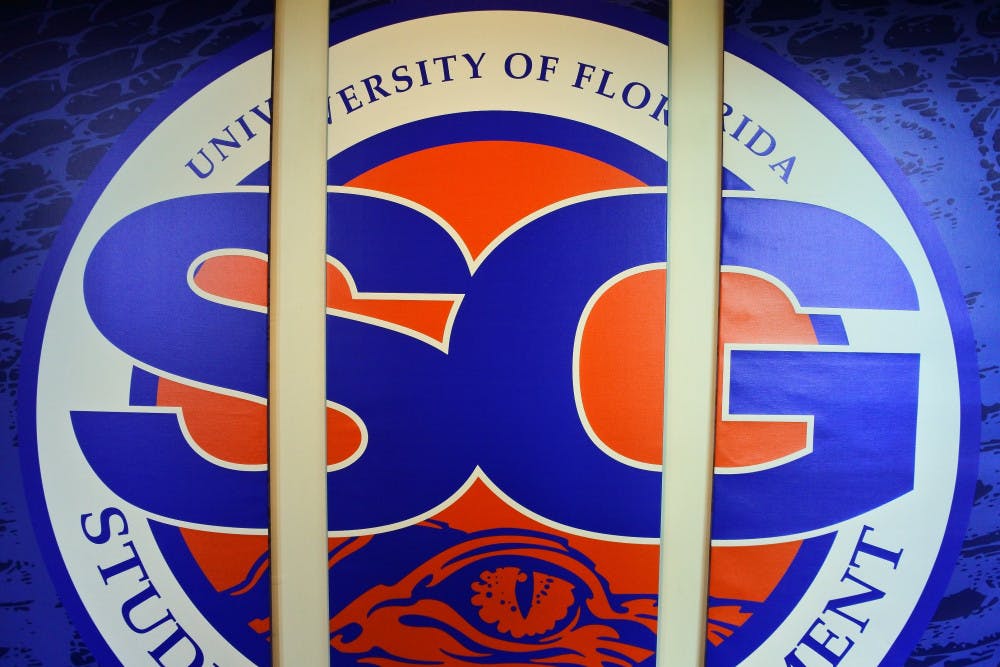UF’s Supreme Court failed three petitions Tuesday after students spent two hours defending them.
During the meeting, Global Vote representatives argued on behalf of the petitions, which they filed after the court overturned amendments to the UF Student Body constitution in a June opinion.
The amendments overturned are the following: allowing remote online voting, reducing the number of Senate seats, reducing the amount of petition signatures needed from the Student Body to five percent from 10 percent and adding genetic information to SG’s anti-discrimination policy.
UF SG Solicitor General Nick Smith, who had the opportunity to argue against Global Vote, didn’t attend.
Austin Young, a co-founder of Global Vote, defended the first petition. He asked the court to reconsider its interpretation of the three-fifths approval requirement, in which the court ruled that three-fifths of students who cast a ballot must vote yes on an amendment for it to pass.
Young said abstention votes shouldn’t be included with those voting yes or no on individual amendments, but Chief Justice Chris Tribbey said this wasn’t written in the constitution.
“It sounds to me like you want the constitution to say something other than it does,” Tribbey said.
The court unanimously voted against the petition.
Tyler Richards, a co-founder of Global Vote, defended the second petition, which claimed that the power to ratify election results lies with Student Senate and not the judicial branch.
He argued that Senate has the sole authority to verify election results, and the Supreme Court cannot disqualify them.
The court never ruled the results were incorrectly verified, but rather that the results weren’t verified the way the constitution intended, Tribbey argued.
The second petition failed unanimously. The court argued it has the power to review Student Senate election decisions.
Young defended the third petition, which stated the court doesn’t have the authority to recall past amendments added to the constitution. According to the constitution, approved amendments become part of the constitution at 8 p.m. on May 1 following the Spring general election.
The court spent several minutes deliberating the third petition before ruling 6-1 to deny it, with Justice Jonathan Siragusa voting in favor of Global Vote.
The Summer ruling set a precedent that the court can change the constitution through interpretation, Young said.
“One day we’ll have online voting,” he said. “It’s been a fight at least over a decade. When something has that kind of a movement behind it, one day it’ll come to fruition.”






